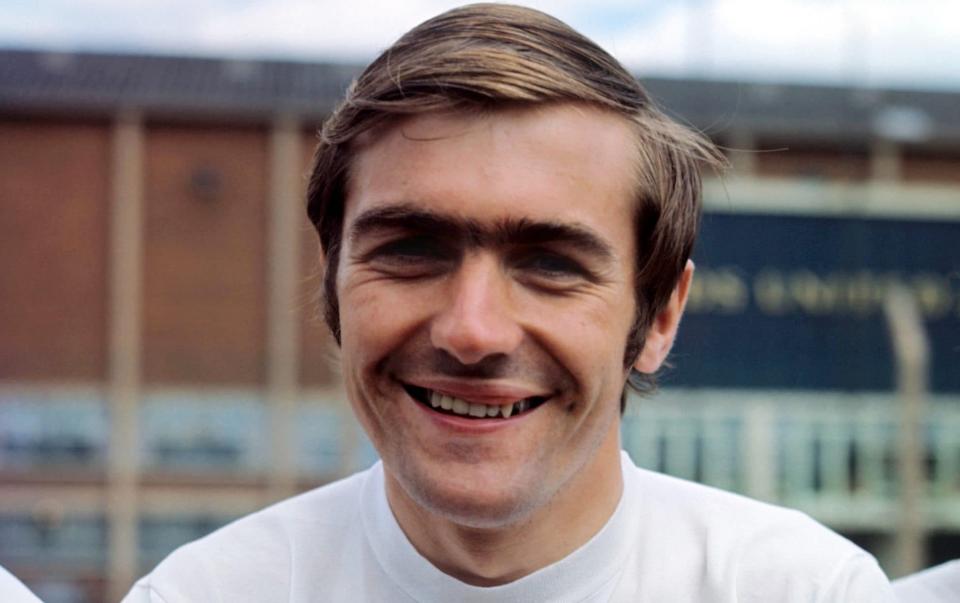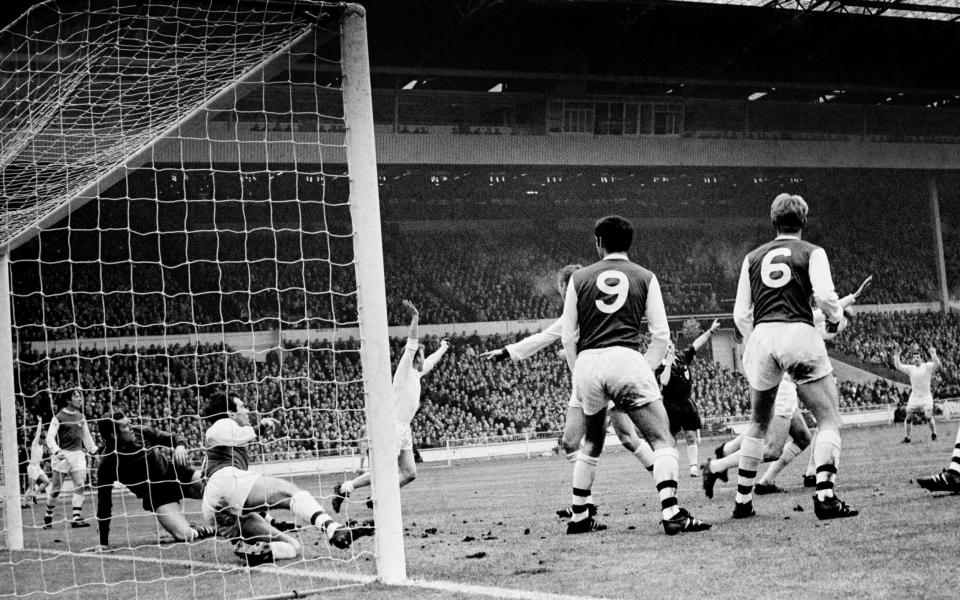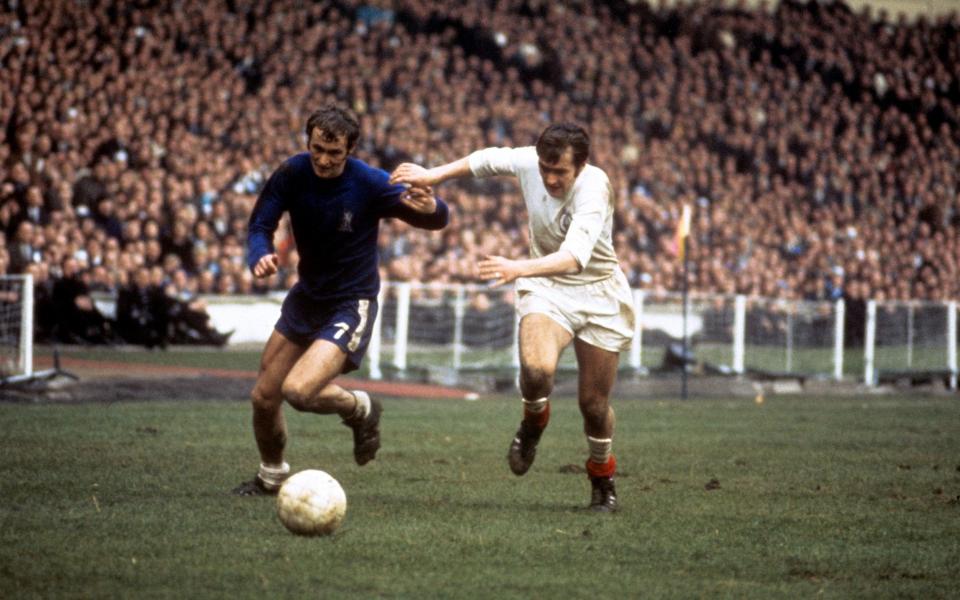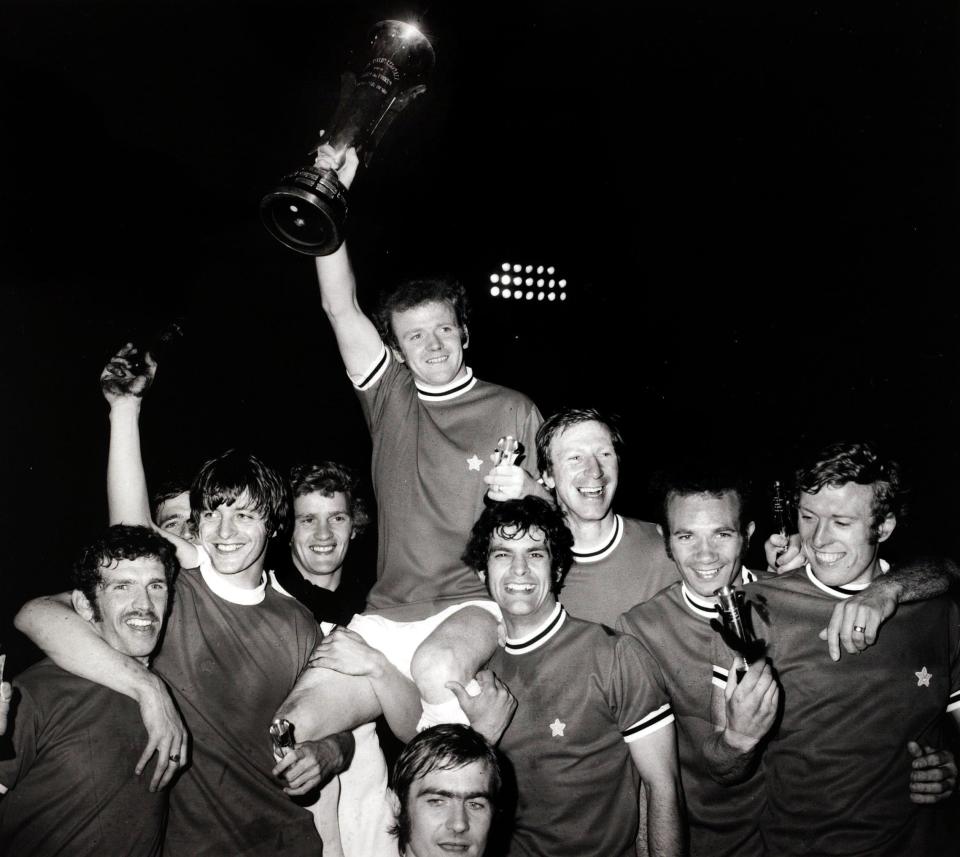Terry Cooper, left-back whose forays upfield were crucial to the success of Don Revie’s great Leeds United side – obituary

Terry Cooper, who has died aged 77, was peerless at left-back in the late 1960s and early 1970s both for England and for the great Leeds United side of the time, sharing in their many triumphs and near-misses as well as fashioning a new template for English defenders with his rampaging runs upfield.
Then playing for Ferrybridge Amateurs, Cooper arrived for a trial at Elland Road at 17 carrying his boots in a paper bag. With Leeds in the Second Division, Don Revie was looking for young talent around which he could build his side and Cooper was offered terms directly after the match.
He made his debut in 1964 against Swansea in the game which won them promotion. Initially a winger, he was converted to full-back by Revie. By 1968, when he hit the volley against Arsenal which won the League Cup, he was established in the side.

Though only 5ft 7in tall, he was athletic, and his link-up play with Johnny Giles and overlaps with Eddie Gray on the wing would become a key factor for Leeds’s success. It marked the end of the days when a full-back’s only task was to crash the opposing winger into the stands.
Cooper become so distinctive in his play that he was contracted by Hummel to wear their white boots. Years later, he confessed that he preferred those made by Adidas, which he would get the ground staff to paint with white Dulux before every game.
With Leeds, Cooper also won the Fairs Cup in 1968, defeating Ferencvaros to give the club their first European trophy. A season later, they won the League Championship, with Cooper finishing as a runner-up on four other occasions.

In 1970, Leeds narrowly missed out on three pieces of silverware, including losing in the European Cup semi-final and FA Cup final. That year, however, Cooper was one of the few England players to enhance his reputation at the World Cup in Mexico. Alf Ramsey had picked him to replace the ageing Ray Wilson.
Cooper drew praise from Pele following the fabled match against Brazil, in which the Leeds player supplied the cross that led to the chance of an equaliser spurned by Jeff Astle. Despite tiring in the heat, he also played as well as any in the eventual loss to West Germany in the quarter-final.
The next year, Leeds took the Fairs Cup again, defeating Juventus on away goals, and only failed to win the league in the last match. The following season, however, Cooper broke his leg in April against Stoke. It had to be reset after the first operation proved unsatisfactory, and it was 20 months before he took to the pitch again.
In that time, he missed two FA Cup finals, as well as Leeds’s controversial loss in the European Cup final against AC Milan. They did win the league title in 1974 but Cooper failed to play sufficient matches to qualify for a medal.

When Revie became England manager, he picked Cooper once, but it was clear that his injury had cost the defender a yard of pace and his England career came to an end after 20 appearances. With the emergence of Frank Gray and Trevor Cherry, his days in the white shirt of Leeds were also numbered. In 1975, he moved to Middlesbrough, managed by his former team-mate Jack Charlton, after 351 matches and 11 goals for Leeds.
Modest about his own abilities, Cooper preferred to recall those of Norman Hunter and Billy Bremner: “Billy, Johnny and Norman would scare the opposition stupid, and Billy would spend 90 minutes shouting to Jack: ‘When you’ve had enough of him, big man, chip him over to me …’ They didn’t have a chance!”
Above all, he remembered not the trophies but the pleasure of playing with his team-mates. “We just loved playing football together,” he observed. “There were no egos or anything so you never felt like superstars, or that you were doing anything out of the ordinary.”

Terence Cooper was born on July 12 1944 and grew up in Brotherton, North Yorkshire. As he later recalled, it was rugby league rather than football country and as a boy he would travel most weekends to see Castleford or Featherstone Rovers play.
After he left Elland Road he had three years at Ayresome Park, where his team-mates included Graeme Souness. At first, Cooper thought that it was his failing capacities that meant 40-yard passes were no longer sent to his feet when he broke forward.
“So, I said as much to Jack, and he just turned round and said: ‘Don’t be so bloody stupid, this is Middlesbrough, we don’t have a Johnny Giles or a Billy Bremner. No one does. You’re doing fine’”.
In 1978 he moved on to Bristol City, then had spells with Bristol Rovers and at Doncaster before returning to Ashton Gate as City’s player-manager in 1982. They had plunged down through the divisions from First to Fourth and their finances had described a similar arc.

As well as having to rely on young players, Cooper found himself working as the club’s scout and laundryman, and he even helped new arrivals to move house. He was rewarded by the side gaining promotion in 1984. Two seasons later, playing attractive football, the team won the Freight Rover Trophy at Wembley by beating Bolton.
Joe Jordan, whom Cooper had brought to the club, took over in 1988, and Cooper went to Exeter; they achieved promotion from the Fourth Division as champions in 1990.
Cooper went next to Birmingham City, then in crisis, and took them up from the Third Division. He departed, however, not long after the start of the Karren Brady era at St Andrew’s.
Cooper went back to Exeter but enjoyed markedly less success and never returned to management. Instead, he spent a decade as Southampton’s chief European scout before retiring in 2007 to Tenerife. In 2014, he survived a bout with bowel cancer.
He and his wife had a son, Mark, now manager of Barrow, and two daughters.
Terry Cooper, born July 12 1944, died July 31 2021

 Yahoo News
Yahoo News 